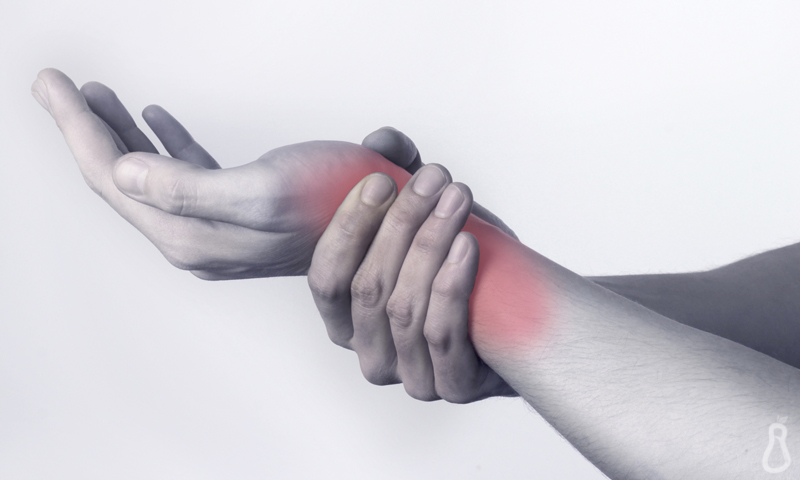Are you tired of getting hurt? Do you feel like you’re constantly recovering from one injury after another?
If so, you’re not alone. Most of the climbers that I talk to are recovering from an injury or working hard to avoid one. If that sounds like you, then you may want to take a good look at your diet and training.
Training
Now, I’m obviously no climbing coach, but it doesn’t take much experience to realize that improper training can lead to injury. In many cases, climbing injuries are caused by poor technique, insufficient warm ups, ignoring antagonist muscle groups, and unsafe falls.
If you suspect that your technique could use a makeover, then ask a friend to videotape you climbing. Watch the video to see if any poor habits stand out to you, and then get a climbing coach or climbing mentor to review your video and identify the weaknesses in your technique.
If you don’t take the time to warm up or work your antagonist muscle groups, then check out this sample warm up routine from Seth Lytton or this super awesome injury prevention guide from Dr. Jared Vagy.
If falling is your problem, then learn how to make your falls safer. It might sound silly, but there is actually an art to falling. If you boulder, that usually means relaxing, dropping, and rolling to save your ankles.
If you want to get real fancy, you can watch this somewhat lengthy but useful video on falling techniques. If you climb sport or trad, that means watching your feet into the wall and being cognizant of your last bolt or piece.
At the end of the day, you are the best judge of your own body. Pay attention to any chronic aches or sharp pains, and remember to give your body plenty of sleep and rest. If you are constantly training without sufficient rest, you’re doing yourself a disservice.
Diet
In addition to proper training, a healthy diet can also help you avoid those nagging injuries. If you find yourself frequently injured, then it’s time to take a look at your diet.
Are you drinking too much alcohol?
Do you have a sweet tooth?
Are you drinking enough water?
Do you eat any fresh produce?
Alcohol
It seems that beer and climbing go hand-in-hand, but if you’re constantly getting hurt, then it might be time to cut back on the alcohol – at least while you’re healing.
Alcohol of any kind is a neural depressant, which means that it slows things down. That’s why you get clumsy and stupid and incapable of formulating coherent statements when you’re drunk. Alcohol literally slows down your brain.
But that’s not all. In addition to suppressing brain function, alcohol also suppresses your immune function, making it harder for you to recover from your workouts, fight off infections, and bounce back from injuries.
So if you want to do your immune system a favor, then save the alcohol for the special occasions… like sending.
Hydration
I know it gets old, but water and electrolytes are really crucial if you want to stay healthy. Dehydration has been linked to increased risk of injury as well as decreased performance, so if you want to avoid injuries, then it’s time to get serious about your hydration.
In terms of exercise performance, dehydration has the ability to decrease both muscle strength and endurance. This means that hydration can play a huge role in whether or not you send your current project.
Dehydration can also increase your risk for tendon, muscle, and joint injuries, as water acts as a lubricant in the body. If you are chronically dehydrated, you might find yourself experiencing chronic back pain, muscle aches, or tweaky tendons on a daily basis.
If you don’t already use an electrolyte mix for your longer training sessions or climbing days, I highly recommend the hydration mix from Skratch Labs.
Food Quality
The final step in a healthy diet is choosing quality food. If you’re cutting back on alcohol and sugar, but you’re eating everything out of a package, then you might be missing out on a great deal of nutrition.
Now don’t get me wrong. Not all packaged foods are bad, but if you want to strengthen your immune system, then you need to focus on eating fresh food.
Try to prepare as many meals as you can from home, in order to save money and ensure the freshest ingredients. Consuming raw fruits and vegetables is a great way to get more vitamins, minerals, and antioxidants into your diet without taking a ton of supplements.
Once you clean up your diet and remove junky, inflammatory foods from the mix, your body will have the chance to recuperate properly. Be sure to browse through some of the recipes listed here if you’re in need of some inspiration.
Conclusion
So that’s the secret to avoiding injuries. If you feel like you’re constantly falling apart, then you might want to take a look at your training regimen and diet. If your training isn’t the culprit, then you may want to:
- Cut back on alcohol
- Hydrate with water and electrolytes throughout the day
- Choose fresher foods

